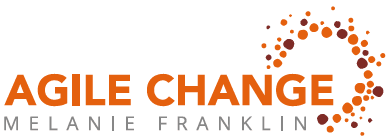Listening to various governments around the world, as they ease lockdown restrictions, those in the knowledge economy (me and you) are going to be working from home for a long time to come. There is no rationale for us to return to our offices, we can do everything we need do from home BUT it is harder, it is more tiring, and it is more dispiriting.
My job is to help teams design, develop and adopt new ways of working. The essence of what I do is:
To be effective, I need to form trusting relationships with those who are impacted by the change. This has become harder, as we have lost the opportunity for informal contact, where we exchange not only work-related information but small insights into our own lives, which develops common bonds and strengthens our feeling of camaraderie.
To build this trust, I return to the results of over 80 interviews I conducted when I wrote the Agile Change Management textbook (the course manual for the Agile Change Agent course). At that time, the views of so many talented change and transformation directors identified these factors:
Reflecting on them, they have never seemed more important and are guiding how I create my new online relationship building skills.
Reliable – I include in my emails a time when I will reply with my answers, and I stick to it. In the virtual world, a lack of contact can quickly feel like a lack of connection.
Predictable – I explain why something is important and how it will help others things to get done. Without face to face contact I need to be more explicit about my approach, my techniques, my criteria underpinning my decisions because there is no informal contact when I could chat them through it.
Congruent – I am working with a team streamlining interconnected processes to reduce time and effort. It is complex work, where one change triggers lots of other changes. Instead of setting myself up as “the boss” that they report their progress to, the work has been shared among us, so that I can share the pain and make a useful contribution.
Openness – when difficult feedback is needed, I don’t leave it to a “more convenient time”, pretending I can address the issue when we are back working together in the same office. Instead, I make that difficult call “can we talk?” and explain what is on my mind.
Loyalty – when credit is due, even when I call to thank people, I write a note, and explain why what that person did was so helpful, and the positive difference it has made, so they have something tangible to remind them of their achievement.
I would love to hear your thoughts on how you are building your “virtual” relationship building skills, as this is an area that is going to grow in importance and impact as we move towards a new, online normal.
